A message from our Managing Director
Video link: https://youtu.be/cjytM4M8res
A call to join us in redressing learning loss and responding to the plight of children in flood-affected communities in Nigeria
It was with disbelief and heavy hearts that we have monitored the devastating flooding which is now reported to have affected 33 out of 36 Nigerian states. Two images were especially painful. The first was the viral image of primary schools, almost completely submerged in floodwaters in one state. The second was CNN’s Larry Medowo’s coverage of the flooding in another state, and the lamentation of a mother as she paddled a canoe down her street. In spite of the severe hardship she was undergoing, her greatest hurt was that her children had been thrust out of schooling due to this flooding. It became glaringly apparent that something needed to be done and at TEP Centre, we are rolling up our sleeves to work and invite you to join us on this humane journey of change.
At TEP, we are no strangers to innovating at scale to address crises:
Establishing Nigeria’s citizen-led assessment and advocacy programme
In 2014, our rapid analysis revealed that the pivotal issue affecting learning and learning outcomes was the dearth of accountability in our education systems. We moved quickly to develop Nigeria’s first and only citizen-led household assessment of learning, LEARNigeria. By 2016 we had developed a one-of-its-kind learning assessment which was easy to understand and deploy and which was benchmarked against the national curriculum. By 2017 we had coalesced 1,200 locally-based volunteers, national and state level institutions, and development organisations to conduct the household assessment in 21,600 households in all of Nigeria’s six geopolitical zones, surveying 49,000 children, testing 40,000 of them aged 5 to 15 years. The results of the survey – including the devastating revelation that only 55% of JSS3 students have attained the reading proficiency of Primary 2 students – have been widely cited and used by several governments, development agencies and private sector organisations to improve the design of learning processes.
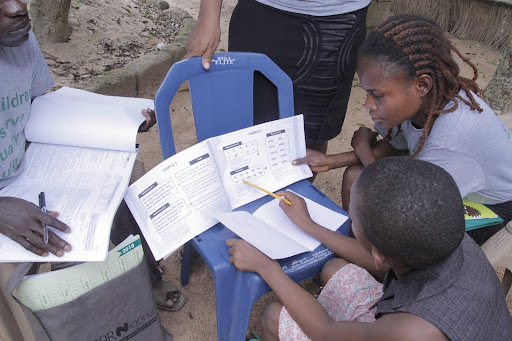
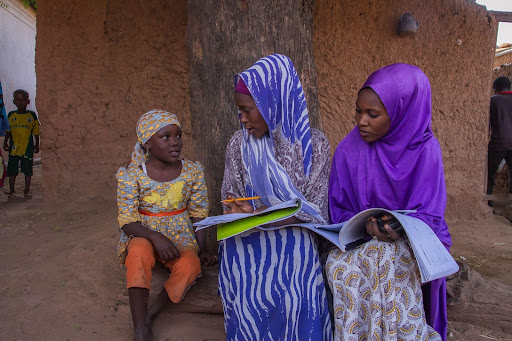
Remediating to bridge the learning gap
In 2018 we realised that it was not enough to survey children, we also needed to intervene to help them learn. So we quickly implemented the LEARNigeria Remedial Programme, and in just 25 days of programming in Northern and South-south Nigeria,we had halved illiteracy levels among the learners. This programme was recognised in a full page ad in the Financial Times paper of October, and once again in the summit magazine distributed to all delegates of the UNESCO Transforming Education Summit held in New York in September 2022.
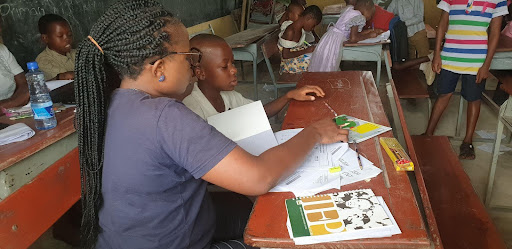
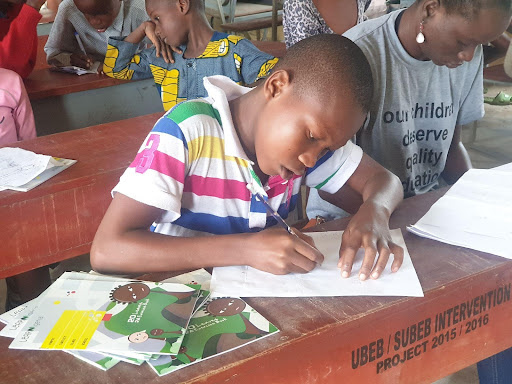
Learning in a pandemic
Once again, during the thick of the pandemic we moved quickly to understand whether learning was happening at a time of unprecedented crisis. Our Learning in a Pandemic survey report of 1,901 respondents in 35 Nigerian states, provided deep insights into how technology was providing access to learning and how the inequitable access to low tech tools meant that the pandemic’s multiplier effect was worse for the poor. What did we do? Once again we moved to respond.
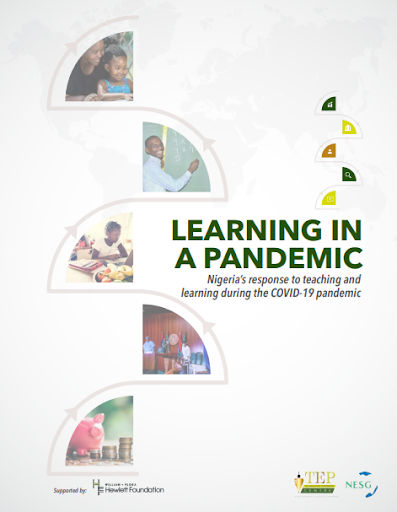
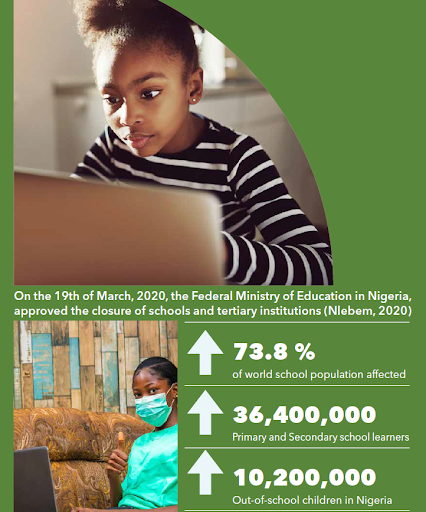
Low tech solutions to improve learning
In partnership with Google.org, we rapidly designed and implemented the Zo Mu Koya Tare (Come Let’s Learn) Programme which tested our hypothesis that in a time of serious crisis, low tech solutions can plug the gap caused by teacher shortages and school lockdowns. Combining the use of basic bulk SMS with workbooks that we designed and supplied to 4,816 children, we worked directly with their caregivers and parents in rural and peri-urban areas in Kano state for 8 weeks. At the end of the period, we found that the programme had resulted in a 33% increase in learning levels among the children.

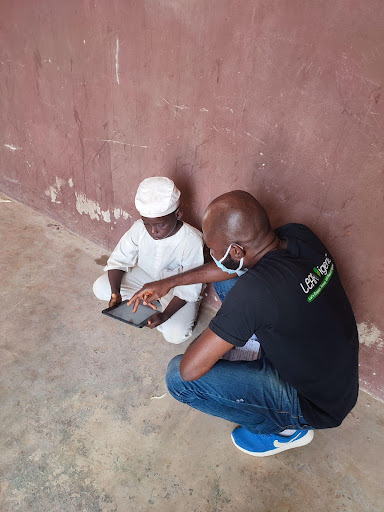
Why is this background information important? Because timely responsiveness at a time of crisis is important, as is the guarantee that the solutions being delivered will work. We invite you to partner with us to stem the inevitable tide of learning loss in some of the regions hardest hit by the floods.
Here is how we will intervene, leveraging solutions that have worked to help children learn even in a time of crisis. We plan to:
- Print and distribute our tested instructional materials to some of the worst-hit communities so we can prevent or reduce learning loss
- Offer low-tech support to parents and caregivers via SMS to facilitate remote learning
- Distribute immediate relief materials to the children and households that we will be reaching
How can you join us? You or your organisation can:
- Fund the reproduction of learning materials including workbooks
- Offer bulk SMS packages to enable so that parents can help their children learn at this time
- Donate cash to enable us print learning materials and purchase relief materials such as powdered milk and mosquito nets
- Publicise this effort on your social media handles using the hashtag #LearningInAdversity
To learn more about how you can contribute,
- Send us an email today at partnerships@tepcentre.com
- Schedule a call with us on +234 809 111 5403
Kindly download and share
YouTube: TEP Centre
www.tepcentre.com/emergency-call
